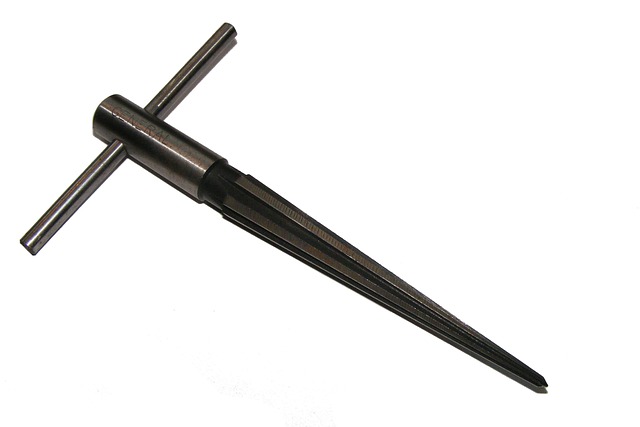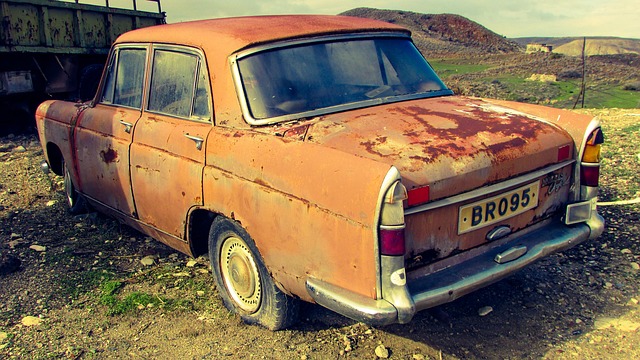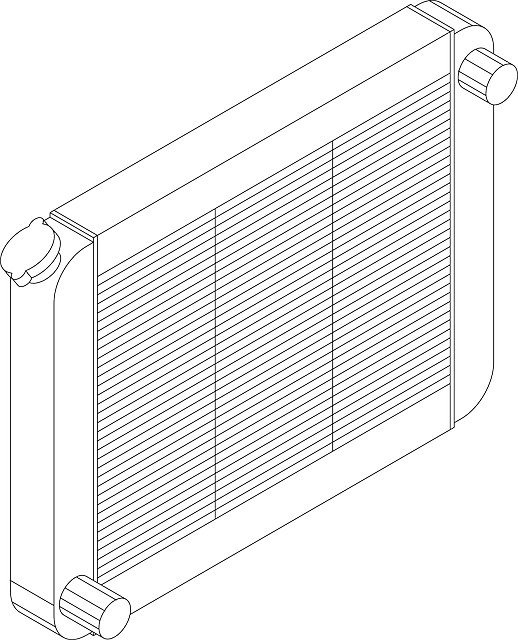Mercedes Approved Body Shops: Precision Repair with Diagnostic Technologies
Mercedes Approved Body Shops are leading providers of premium auto repair services, adhering to rigo…….
Welcome to an extensive exploration of the world of ‘Mercedes Approved Body Shop’—a specialized and highly regulated sector within the automotive industry. This article aims to guide readers through the intricacies of this unique concept, its global impact, and the challenges it faces. By delving into various aspects, from its historical roots to cutting-edge technologies, we will uncover the significance of Mercedes-approved body shops in ensuring vehicle quality, safety, and sustainability.
What is a Mercedes Approved Body Shop?
A Mercedes Approved Body Shop (MABS) is an automotive repair and restoration facility that meets stringent standards set by Daimler AG, the parent company of Mercedes-Benz. These standards ensure that the shop possesses the expertise and resources to handle complex repairs and renovations on Mercedes-Benz vehicles with exceptional precision and quality.
Core Components:
Historical Context:
The concept of Mercedes Approved Body Shops emerged in response to the luxury car manufacturer’s growing demand for specialized after-sales services. As Mercedes-Benz vehicles became increasingly complex, the need for highly skilled technicians and authentic parts became imperative. The approval program was established to protect both the brand’s reputation and the interests of its discerning customers.
Significance:
MABS play a critical role in maintaining the integrity and value of Mercedes-Benz vehicles. By adhering to strict standards, these shops ensure that repairs and renovations are performed correctly, preserving the original design, performance, and safety features for which Mercedes is renowned. This level of quality control also contributes to customer satisfaction and loyalty.
International Reach:
Mercedes-approved body shops operate globally, with a significant presence in North America, Europe, and Asia Pacific regions. This international reach has been driven by the global expansion of Mercedes-Benz vehicles and the brand’s growing appeal among luxury car buyers worldwide.
Regional Variations:
While the core standards remain consistent, regional variations exist in terms of specific repair procedures and available facilities. For instance, shops in dense urban areas might focus more on collision repairs and bodywork, while those in regions with harsh weather conditions could specialize in protective coatings and underbody sealing.
Key Global Trends:
Market Dynamics:
The global automotive repair and restoration market, including Mercedes Approved Body Shops, experienced steady growth due to rising vehicle ownership, increasing complexity of modern cars, and growing demand for specialized services. According to a 2021 report by Grand View Research, the global automotive repair and maintenance market size was valued at USD 674.9 billion in 2020 and is projected to grow at a CAGR of 5.8% from 2021 to 2028.
Investment Patterns:
Mercedes-Benz and its parent company, Daimler, invest significantly in the approval program, including training facilities, research and development, and marketing campaigns. This investment ensures that MABS remain at the forefront of industry trends and technology.
Economic Impact:
MABS contribute to local economies by creating employment opportunities, generating revenue from repairs and restoration services, and fostering supplier relationships. They also play a role in attracting tourism, as many shops offer tours and display historic vehicle restorations.
Digital Transformation:
Materials and Processes:
Future Potential:
The integration of Artificial Intelligence (AI) and machine learning algorithms holds promise for predictive maintenance, where systems can anticipate service needs based on vehicle data. Additionally, the development of autonomous repair robots could revolutionize body shop operations, improving safety and efficiency.
Governance:
Mercedes-Benz establishes global standards and guidelines for MABS through its After-Sales division. These standards are further supported by local regulations and industry associations that govern automotive repair and restoration practices.
Key Policies and Regulations:
Legislative Frameworks:
In many countries, automotive repair shops are subject to licensing and registration requirements. For example:
| Country | Regulatory Body | Key Regulations |
|---|---|---|
| USA | National Institute of Automotive Service Excellence (ASE) | ASE Certification for various specialized areas, including body and paint work. |
| EU | European Commission | Directive on Non-Food Agricultural Products (NPAP), ensuring product safety and quality. |
| Japan | Ministry of Land, Infrastructure, Transport and Tourism (MLIT) | Standards for automotive repair and maintenance, emphasizing safety and environmental considerations. |
Common Challenges:
Criticisms and Solutions:
| Criticism | Potential Solutions |
|---|---|
| High Repair Costs | Encourage MABS to provide transparent pricing and promote competitive pricing strategies while maintaining high-quality standards. |
| Limited Accessibility | Partner with insurance companies to offer incentives for customers choosing MABS, increasing accessibility and convenience. |
| Lack of Transparency | Implement digital platforms that allow customers to track repairs in real-time, enhancing transparency and trust. |
Case Study 1: Restoring a Historical Icon
A Mercedes-approved body shop in Germany was commissioned to restore a rare 1950s Mercedes-Benz 300SL Coupe. The project required meticulous attention to detail, using original parts and advanced restoration techniques. The shop successfully revitalized the classic car, earning international recognition for their craftsmanship and preserving a piece of automotive history.
Key Takeaways:
Case Study 2: Sustainable Collision Repair in Asia
A Japanese MABS pioneered an eco-friendly collision repair method, minimizing environmental impact without compromising quality. They implemented a closed-loop paint system, recycling and reusing materials, and adopted water-based adhesives for reduced VOC emissions. This approach garnered industry awards and sparked interest in sustainable practices across the region.
Lessons Learned:
Emerging Trends:
Strategic Considerations:
Mercedes Approved Body Shops represent a cornerstone of the automotive industry, ensuring that Mercedes-Benz vehicles maintain their renowned quality, safety, and performance. Through rigorous training, advanced technologies, and adherence to global standards, these shops deliver exceptional restoration and repair services. As the industry evolves, MABS will continue to play a pivotal role in shaping the future of vehicle care, embracing technological advancements while maintaining the highest levels of craftsmanship.
Q: What sets Mercedes Approved Body Shops apart from regular auto repair shops?
A: Mercedes Approved Body Shops (MABS) are specialized facilities that meet stringent standards set by Daimler AG for repairs and restorations on Mercedes-Benz vehicles. They offer advanced training, authentic parts, and consistent quality control, ensuring a superior customer experience.
Q: Are MABS expensive? Can they compete with independent repair shops?
A: Repair costs at MABS can vary, but they are often justified by the high level of expertise, genuine parts, and meticulous quality assurance. While some independent shops may offer lower prices, MABS provide peace of mind and original equipment quality, which many customers are willing to pay for.
Q: How do I know if a repair shop is Mercedes Approved?
A: Look for the official Mercedes-Benz logo or certification badge displayed at the shop’s entrance or website. Daimler also provides an online directory where customers can verify the approval status of a specific body shop.
Q: Can MABS handle custom vehicle modifications and restoration projects?
A: Absolutely! Many MABS have extensive experience in historical vehicle restorations and custom modifications. They employ skilled technicians who understand the intricacies of Mercedes vehicles, ensuring that any customization aligns with safety and quality standards.
Q: Are there environmental benefits to using a Mercedes Approved Body Shop?
A: Yes, many MABS are committed to sustainability and incorporate eco-friendly practices into their operations. This includes the use of recycled materials, water-based paints, energy-efficient equipment, and proper disposal of hazardous waste, contributing to a greener automotive industry.

Mercedes Approved Body Shops are leading providers of premium auto repair services, adhering to rigo…….

Mercedes Approved Body Shops are crucial for preserving the quality and authenticity of Mercedes veh…….

Mercedes Approved Body Shops provide top-tier service and support for Mercedes-Benz vehicles, offeri…….

Mercedes approved body shops offer specialized repairs for all models, ensuring original equipment p…….

A Mercedes approved body shop distinguishes itself through stringent standards, rigorous training fo…….

Mercedes approves only a select few body shops for collision repair, ensuring safety standards throu…….

Mercedes Approved Body Shops are leading experts in car restoration and repair, adhering to strict b…….

Choosing a Mercedes-approved body shop ensures your car receives top-tier restoration using genuine…….

Mercedes Approved Body Shops are specialized facilities that meet stringent brand criteria for top-q…….